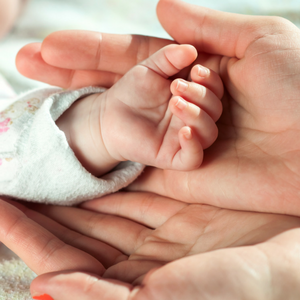
Today (17 September) is World Patient Safety Day. This year’s theme for the day is ‘safe maternal and new-born care’. One in five new mothers experience a mental health problem during pregnancy or after giving birth. Health professionals play a critical role in spotting the early warning signs, and in providing specialist support to help mums recover and enjoy family life with their baby.
This video gives an overview of the mental health problems which can affect mothers, and shows the important role that health professionals like GPs, Health Visitors and Midwives have to play in making sure families get the right support as soon as possible:
The NHS in England has a special pathway of care to make sure that new parents get the right support, from the right service, at the right time. They might get mental health support from a Midwife, GP or Health Visitor, services such as Talking Therapies (for moderate mental health problems), or more specialist services such as our Perinatal Community Mental Health Teams.
Mental health support
Talking Therapies services (also known as IAPT, which stands for Improving Access to Psychological Therapies) are for all adults, but prioritise people who are pregnant or new mums. They offer a range of options to help people overcome common mental health problems like anxiety and depression. Use the NHS website to find your local service and make a self-referral.
Perinatal Community Mental Health Teams work with people who have a range of moderate to severe mental health problems during pregnancy, childbirth and early motherhood. Our Perinatal Community Mental Health Team is accredited by the Royal College of Psychiatrists’ Perinatal Quality Network, in recognition of the excellent standards of care they provide.
The Perinatal Quality Network was started in 2007 to develop and maintain standards for mother and baby units, and our Perinatal Community Mental Health Team have been involved since the beginning. Five years later, the network expanded to include standards for community perinatal mental health services, part of its commitment to promote and improve perinatal mental health support.
Postnatal depression
Around one in ten women experience postnatal depression after having their baby. Our award-winning range of self-help guides includes a booklet on postnatal depression, which may help someone who feels they are struggling with postnatal depression. The guide explains some of the causes, explores ways of coping and managing, and suggests where to find more support.
Go to www.cntw.nhs.uk/selfhelp to find this, and our other self-help guides, in a range of accessible formats.
If you are pregnant or a new mother and are worried about your mental health, please speak to your GP who will help you to access the support that you need. Whatever you are experiencing, there is a service which can support you and your baby.
